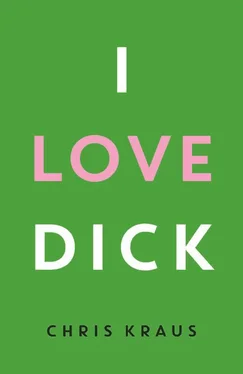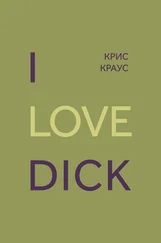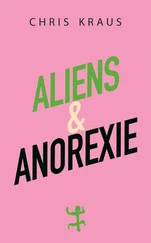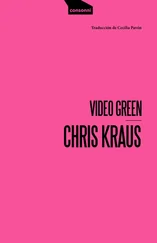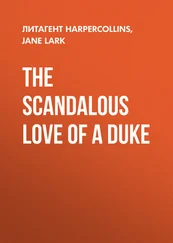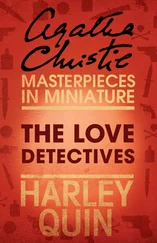In 1979, Claes Oldenburg, Hannah’s partner since the late 1960s, changed their door-locks while she was out one day and married someone else. She recreated the collection of 50 rayguns she’d collected for his work and posed naked with them in a series of ‘performalist self portraits’ called So Help Me Hannah in which she “demonstrates” and overturns her favorite classic citations of male philosophy and art.
Hannah Wilke on Ad Reinhardt: sitting naked in a corner, feeling hopeless, head in hands, high-heeled legs apart. She’s surrounded by toy pistols and bazookas. “WHAT DOES THIS REPRESENT/WHAT DO YOU REPRESENT” the title reads.
Hannah Wilke on Karl Marx: Posed shakily on the pistons of a combustion engine in her strappy high-heeled sandals, naked body part of the machine, Hannah lunges forward in profile, toy guns in hand. EXCHANGE VALUES. (Exchange values ? Whose?)
The insertion of Hannah Wilke’s complex human presence throws all slogans into question. Her beauty is compelling, but as in Gestures , her presence circumvents the pose.
“I have long since resolved to be a Jew… I regard that as more important than my art,” R.B. Kitaj and Arnold Schoenberg declared. Hannah Wilke said: “Feminism in a larger sense is intrinsically more important to me than art.” No one ever called these men bad Jews.
The bitterest irony of Hannah Wilke’s career is that her imitators who risked much less became art stars of the early ’80s. “Wilke’s projection of herself contrasts markedly with the more impersonal impersonations of…the recent work of Cindy Sherman, whose ‘dress up’ masquerades are au fond no less narcissistic, but somehow easier to accept or digest as art because they disguise the self and parody the suffering, pain and pleasure we sense as real in Wilke’s art,” Lowery Sims argued in a New Museum catalog in 1984. But by then art history had already labelled Wilke dumb, her imitators smart:
Judith Barry and Sandy Flitterman, 1980: [Because Hannah Wilke’s art] “has no theory of the representations of women, it presents images of women as unproblematic. It does not take into account the social contradictions of ‘femininity’.” ( Screen : 35–39)
Catherine Liu, 1989: “Wilke is well known for appearing nude in her work. She projects a hippylike comfort with her own nakedness. But her self exposure, which translates as some kind of rhetoric of sexual freedom for women, is too facile, too simple a formulation. The work of artists like Cindy Sherman and Aimee Rankin has shown female sexuality to be the site of as much pain as pleasure.” ( Artforum 12/89)
“Because we rejected a certain kind of theoretical language, people just assumed that we were dumb,” the poet Alice Notley said to me in Paris last year. Hannah Wilke spent a great deal of energy throughout her life trying to prove that she was right. If art’s a seismographic project, when that project meets with failure, failure must become a subject too. Dear Dick, That’s what I realized when I fell in love with you.
“Of course, Hannah did become a monster,” I said to Warren Niesluchowski. Warren’s a friend, an artworld personality and critic, a smart and cultivated guy. We were sitting on Mike Kelley’s patio at a barbecue, catching up on news. Warren knows everyone in the artworld. He’d known Hannah since they met in 1975 at the Soho restaurant Food.
Warren chuckled. “Yes, she did. But of the wrong kind. Not a monster on the order of Picasso, or—” (and here he named several other famous males). “The problem was, she started taking everything so personally. She refused to take a leap of faith. Her work was no longer art.”
In 1985 Claes Oldenburg threatened an injunction against the University of Missouri Press. They were preparing a book of Hannah Wilke’s work and writings to accompany her first major retrospective.
In order to protect his “privacy,” Claes Oldenburg demanded that the following items be removed: 1) a photograph from Advertisements For Living that depicted Claes together with Hannah’s eight year old niece. 2) Any mention of his name in Hannah’s writings. 3) Reproduction of a collaborative poster, Artists Make Toys. 4) Quotations from a correspondence between him and Hannah that was a part of Hannah Wilke’s text, I Object .
Claes’ fame and the University’s unwillingness to defend her made it possible for Oldenburg to erase a huge portion of Hannah Wilke’s life. Eraser, Erase-her —the title of one of Wilke’s later works.
I explained to Warren about the difference between male and female monsters. “Female monsters take things as personally as they really are. They study facts. Even if rejection makes them feel like the girl who’s not invited to the party, they have to understand the reason why.”
Monstrosity: the self as a machine. The Blob , mindlessly swallowing and engorging, rolling down the supermarket aisle absorbing pancake mix and jello and everyone in town. Unwise and unstoppable. The horror of The Blob is a horror of the fearless. To become The Blob requires a certain force of will.
Every question, once it’s formulated, is a paradigm, contains its own internal truth. We have to stop diverting ourselves with false questions. And I told Warren: I aim to be a female monster too.
Love, Chris
Eagle Rock, Los Angeles
July 6, 1995
Dear Dick,
Last weekend I went up to Morro Bay and dropped acid for the first time in twenty years. The night before I’d dreamt about poverty. No matter what the rich may say, poverty is not just lack, it’s a gestalt, a psychological condition.
I dreamt about Renee Mosher, an artist-carpenter-tattooist who lives in upstate New York, the Town of Thurman, the same town she was born in. Renee has two grown daughters who she’s raised alone. She’s 39 or so and in the dream just like in life, she looked old and frightening. In the dream we were best friends, we told each other everything. But waking up, the impossibility of it—returning to an adolescent state where you choose your friends for who they are, and not their circumstances—flooded through me like bad blood. When you’re old, essentialism dies. You are your circumstances. Renee’s house is getting repossessed next month because she hasn’t paid her taxes for three years. Notices pile up, sometimes she opens them. And what’s the point of even trying? Even if she finds a way to pay, the taxes’ll just add up again. She can’t afford to keep the house. She’ll move into a trailer. She’ll walk away. A blood vessel burst in Renee’s eye while she was installing a kitchen window at my house. The doctor at the clinic said it was her gall bladder. That cost her 60 dollars. When Renee gets sick she misses work and loses pay. The poor do not write faxes, hire lawyers or cut backtax deals with Warren County. They get sick, they feel crazed, they walk away.
“Rich people are just poor people with money,” my socialite boss said 15 years ago in New York. But it’s not true. There is a culture of poverty and it’s not bridgeable.
John & Trevor’d travelled with a Warirapa shearing gang in the North Island of New Zealand since September. The job was lucrative and hard: start at 5, knock off at 5, seven days a week unless it rained. All spring long John and Trevor talked about the trip they’d take at Christmas when the job ran out. They’d put John’s ‘61 V-8 Holden on the road and take off on a drinking/driving/whoring tour around New Zealand. They talked about the trip so much we all felt like we were going, too. They left Pahiatua on Christmas Eve. But on Boxing Day the car got totalled in a drunken wreck. They spent all the shearing money that they’d saved just paying off the bondsman.
Читать дальше
Конец ознакомительного отрывка
Купить книгу
